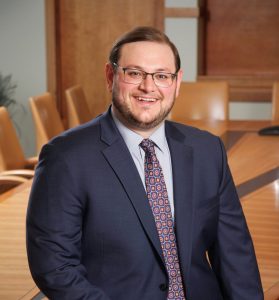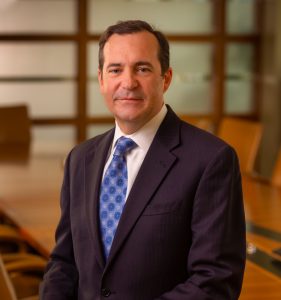Brett Favre’s Hail Mary—What First Amendment Hurdles Will the Former Packer Face in His New Defamation Cases?
This article was originally published in February 2023. An updated version of this article is forthcoming in the May 2023 edition of Wisconsin Lawyer magazine.
As he so often did during his 15 years as the Green Bay Packers MVP quarterback, Brett Favre has dominated the news cycle during the NFL’s playoff season this year. This time, however, it is for what he is doing in a Mississippi courtroom rather than on the frozen tundra of Lambeau Field. After a Mississippi state audit revealed the misuse of money from the state’s welfare program, Favre heaved up three defamation lawsuits against a Mississippi state official and two sports broadcasters who allegedly tarnished the Packers legend’s good name.[1] CNN summarized Favre’s involvement:
A 2020 state audit found that tens of millions of dollars were improperly used from the state’s welfare program. Portions of the money were to be used to build a volleyball facility at the University of Southern Mississippi, Favre’s alma mater, as well as $1.1 million paid to the former quarterback for a public service announcement campaign, according to investigators.
Favre returned $500,000 in May 2020 and repaid the remaining $600,000 in October 2021 after the state auditor issued a demand letter for it, according to the auditor’s office. But the auditor’s office maintains Favre still owes $228,000 in interest payments.
Favre has denied knowing the money he received was welfare money, saying in a statement last year that he was being “unjustly smeared in the media.”[2]
Commenting on this episode, one sportscaster allegedly called Favre a “sorry mofo to steal from the lowest of the low” and said that Favre “stole money from people that really needed that money.”[3] A second sportscaster allegedly described Favre as a “thief” who was “stealing from poor people in Mississippi.”[4] Last week, Favre filed defamation suits in Mississippi against both sportscasters and a Mississippi public official involved in publishing the audit.
To cross the goal line on his defamation claims, Favre must prove: “(1) a false and defamatory statement concerning [him]; (2) an unprivileged publication to a third party; (3) fault amounting at least to negligence on the part of the publisher; and (4) either actionability of the statement irrespective of special harm or the existence of special harm caused by the publication.”[5]
On the one hand, it is understandable why Favre would seek to vindicate his name in court—he apparently believes he was falsely accused of abhorrent conduct. But that desire to strike back at someone for expressing their views runs squarely into the First Amendment, particularly where public figures or public money are involved. Indeed, “speech concerning public affairs is more than self-expression; it is the essence of self-government.”[6]
The Favre dispute offers a helpful lens through which to analyze the intersection of one’s reputational interests with another’s right to free speech. In particular, Favre will likely have to navigate two major defensive schemes to succeed on his defamation claims: falsity and actual malice.[7]
Provably False Statement
Because a defamation claim requires a “false statement,” a communication is actionable only if it contains a “provably false” assertion of fact.[8] This rule has its roots in the First Amendment, which provides “protection for statements that cannot reasonably [be] interpreted as stating actual facts about an individual.’”[9]
Requiring defamation claims to allege a provably false statements ensures that “imaginative expression” and “rhetorical hyperbole” will continue their important contribution to the “public debate.”[10] Consequently, “if it is plain that the speaker is expressing a subjective view, an interpretation, a theory, conjecture, or surmise, rather than claiming to be in possession of objectively verifiable facts, the statement is not actionable.”[11]
Courts have often held that use of words like “crook” or “thief,” depending on the context, do not rise to the level of actionable, provably false statements. For instance, in Terry, an investigative news story included testimonials describing a wedding videographer’s operations using phrases like “[y]ou feel like you’re being robbed” and “[y]ou’re robbing these people[,] [y]ou’re cheating these people.”[12] Even though the plaintiff relied on “dictionary definitions” of the words that “may encompass criminal behavior,” the court found that the context—namely, frustrated customers characterizing their experience—made clear that the speaker’s “statement did not imply criminal behavior.”[13]
Perhaps reasonable listeners would interpret the sportscasters’ use of “thief” and “stealing” to mean that Favre engaged in criminal activity. Or perhaps they would view the statements as mere hyperbole, suggesting that Favre used his fame in an unsavory way to sway government decision-makers. The Mississippi court will decide after taking a deep dive into the context surrounding each particular statement.
Assuming the court agrees with Favre that the statements are provably true or false, the question will become: which are they? Favre will have to prove “a false and defamatory statement concerning [him.]”[14] However, “[m]inor inaccuracies do not amount to falsity so long as the substance, the gist, the sting, of the libelous charge be justified.”[15] Falsity likely cannot be resolved until the parties delve into Favre’s actions, knowledge, and involvement in the underlying dispute. This highlights one of the inherent risks in defamation actions like these: Since the truth of the challenged statement is always at issue, plaintiffs like Favre invite invasive discovery into their personal lives to test the speaker’s veracity.
Actual Malice
Even if Favre can prove a false statement of fact, however, it does not necessarily mean he will put enough points on the board to get the win. As a public figure, Favre must clear a high bar to show that the speakers acted with the requisite state of mind.
In New York Times Co. v. Sullivan, the United States Supreme Court held that a “public official” bringing a defamation claim must establish that the speaker acted with “actual malice.”[16] The Supreme Court later extended its application of the “actual malice” standard to “public figures,” not merely “public officials.”[17] Favre is likely a public figure based on his Super Bowl victory, his three NFL Most Valuable Player awards, and the fame he has intentionally cultivated. But even if that were not the case, “[a]ny person who becomes involved, voluntarily or involuntarily, in any matter of legitimate public interest […] becomes in that context a vortex [or limited purpose] public figure who is subject to fair comment.”[18] The extensive media coverage of his alleged wrongdoing and his own defamation lawsuits appears to have once again thrust Favre into the glare of the bright lights. He therefore must demonstrate “actual malice.”
“Actual malice,” despite its usual connotation, does not require “ill will, evil or corrupt motive, intention to injure, hatred, enmity, hostility, or spite.”[19] But it is nonetheless a high bar, requiring the defendant to have made the false statement knowing that it “was false or with reckless disregard of whether it was false or not.”[20] To show reckless disregard, the plaintiff “must show that the defendant in fact entertained serious doubts as to the publication’s truth.”[21] This is a high burden—and purposefully so.
Conclusion
Did the sportscasters make “provably false” statement of facts? Will Favre be able to make the showing of actual malice? Or will Favre take a sack? Time will tell. But while the underlying allegations are serious, this is a contest among public figures with the means to defend themselves. So we can comfortably sit on the sidelines and make our Hail Mary puns.
Increasingly, however, it seems that wealthy and powerful people are using the threat of defamation lawsuits to suppress important speech by others, including those without the means to defend against such tactics. For example, a Washington Post opinion piece comments that “the past several years have seen a worrisome increase in libel lawsuits brought by a broad array of political candidates, elected officials and domestic corporate titans, not to mention foreign autocrats and oligarchs.”[22] Against that backdrop, the First Amendment guardrails become all the more important to ensure that fans and hecklers alike can express their views.
[1]https://www.cnn.com/2022/11/28/us/brett-favre-welfare-fraud-motion-to-dismiss/index.html (last accessed February 10, 2023).
[2]https://www.cnn.com/2023/02/09/us/brett-favre-files-defamation-lawsuits/index.html (last accessed February 10, 2023).
[3] Id.
[4] Id.
[5] Simmons L. Grp., P.A. v. Corp. Mgmt., Inc., 42 So. 3d 511, 517 (Miss. 2010).
[6] Garrison v. Louisiana, 379 U.S. 64, 74–75 (1964).
[7] Favre filed his lawsuits in Mississippi. We also focus on Wisconsin law in this article—as it is where we live and where Favre made his name—but many of the principles apply similarly across the nation due to the First Amendment guardrails.
[8] Milkovich v. Lorain J. Co., 497 U.S. 1, 20 (1990); see also Terry v. J. Broad. Corp., 2013 WI App 130, ¶19, 351 Wis. 2d 479, 840 N.W.2d 255 (citing Milkovich for same proposition).
[9] Id. (quotations omitted).
[10] Milkovich, 497 U.S. at 20.
[11] L. Offs. of David Freydin, P.C. v. Chamara, 24 F.4th 1122, 1130 (7th Cir. 2022) (citation omitted).
[12] Terry, 351 Wis. 2d 479, ¶¶3, 9 (emphasis added).
[13] Id., ¶¶23, 33; see also Ghanam v. Does, 303 Mich. App. 522, 546, 845 N.W.2d 128, 144 (2014) (“Terms such as ‘blackmailer,’ ‘traitor,’ ‘crook,’ ‘steal,’ and ‘criminal activities’ must be read in context to determine whether they are merely exaggerations of the type often used in public commentary.”).
[14] Simmons L. Grp., 42 So. 3d at 517.
[15] Masson v. New Yorker Magazine, Inc., 501 U.S. 496, 517 (1991) (internal citations and quotations omitted).
[16] New York Times Co. v. Sullivan, 376 U.S. 254, 279-280 (1964).
[17] Harris v. Quadracci, 48 F.3d 247, 250 (7th Cir. 1995).
[18] Simmons L. Grp., P.A. v. Corp. Mgmt., Inc., 42 So. 3d 511, 518 (Miss. 2010) (quotations omitted).
[19] Carson v. Allied News Co., 529 F.2d 206, 209 (7th Cir. 1976).
[20] Id. (quoting Sullivan, 376 U.S. at 280).
[21] Biskupic v. Cicero, 2008 WI App 117, ¶27, 313 Wis. 2d 225, 756 N.W.2d 649 (internal quotations omitted).
[22] https://www.washingtonpost.com/opinions/2022/03/08/libel-suit-increase-times-v-sullivan-news-media/ (last accessed February 11, 2023).
Stafford Rosenbaum LLP is a full-service law firm with two convenient office locations in Madison and Milwaukee, Wisconsin. Over 140 years of dedication to businesses, governments, nonprofits, and individuals has proven that effective client communication continues to be the heart of our practice.





